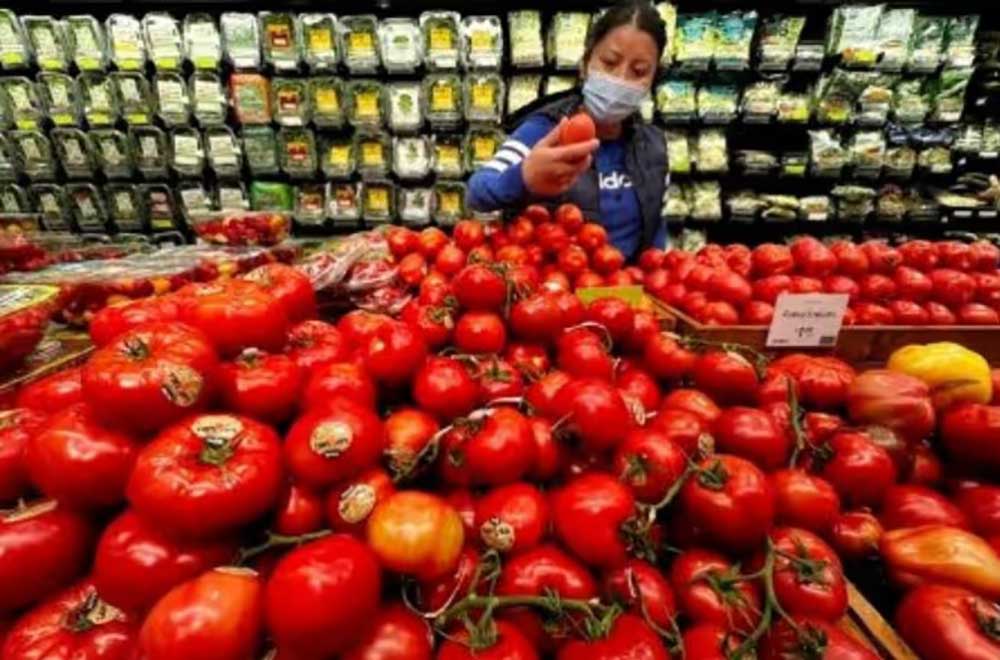By Lucia Mutikani
WASHINGTON- US consumer prices rose moderately in July and the annual increase in inflation slowed to below 3 percent for the first time in nearly 3-1/2 years, opening the door wider for the Federal Reserve to cut interest rates next month.
The report from the Labor Department on Wednesday marked the third straight month of tame consumer price readings and added to a mild rise in producer prices last month in suggesting that inflation was firmly back on a downward trend. Ebbing inflation aligns with anecdotes from businesses that consumers are pushing back against high prices, through bargain hunting, cutting back on purchases and trading down to lower-priced substitutes.
But with rents pushing higher last month and inflation still above its 2 percent target, economists said it was unlikely the US central bank would kick off its anticipated easing cycle with a 50-basis-point rate cut, absent a deterioration in the labor market. A jump in the unemployment rate to near a three-year high of 4.3 percent in July put a half-percentage-point rate reduction on the table.
“This report shows continued progress towards the Fed’s inflation goals,” said Scott Anderson, chief economist at BMO Capital Markets. “Nothing in it would keep the Fed from cutting in September, but market hopes for a bigger cut still seem like a long shot.”
The consumer price index rebounded 0.2 percent last month after falling 0.1 percent in June, the Labor Department’s Bureau of Labor Statistics reported. The rise was in line with economists’ expectations. Before rounding up, the CPI increased 0.155 percent .
A 0.4 percent increase in the cost of shelter accounted for nearly 90 percent of the rise in the CPI. Shelter costs, which include rents, increased 0.2 percent in June. Food prices gained 0.2 percent , matching June’s rise. Higher rent and food prices could continue to weigh on the minds of voters ahead of the Nov. 5 US presidential election.
Grocery store prices edged up 0.1 percent for a second straight month. Egg prices jumped 5.5 percent . Meat, fish, fruits and vegetables, and nonalcoholic beverages cost more. But there were price declines for other food items consumed at home as well as cereals, bakery and dairy products.
Gasoline prices were unchanged after falling for two straight months. The cost of electricity increased marginally, while natural gas prices dropped 0.7 percent .
In the 12 months through July, the CPI increased 2.9 percent . That was the first sub-3 percent reading and smallest gain since March 2021. Consumer prices advanced 3.0 percent on a year-on-year basis in June.
Annual consumer price growth has moderated considerably from a peak of 9.1 percent in June 2022 as higher borrowing costs cool demand. Details of the CPI and PPI reports pointed to tamer July readings of the personal consumption expenditures (PCE) price indexes, which are tracked by the Fed for monetary policy.
Economists’ estimates for the PCE price index, excluding the volatile food and energy components, ranged from a gain of 0.1 percent to 0.18 percent . The so-called core PCE price index rose 0.2 percent in June. Core inflation was forecast to increase 2.6 percent on a year-on-year basis, matching June’s advance.
“Consumers are still mad about inflation, which most people measure by comparing prices today with where we remember them being ‘not that long ago,’” said Bill Adams, chief economist at Comerica Bank. “If inflation continues to trend more normally, consumers will become used to higher price levels and frustration over inflation will fade.” – Reuters





